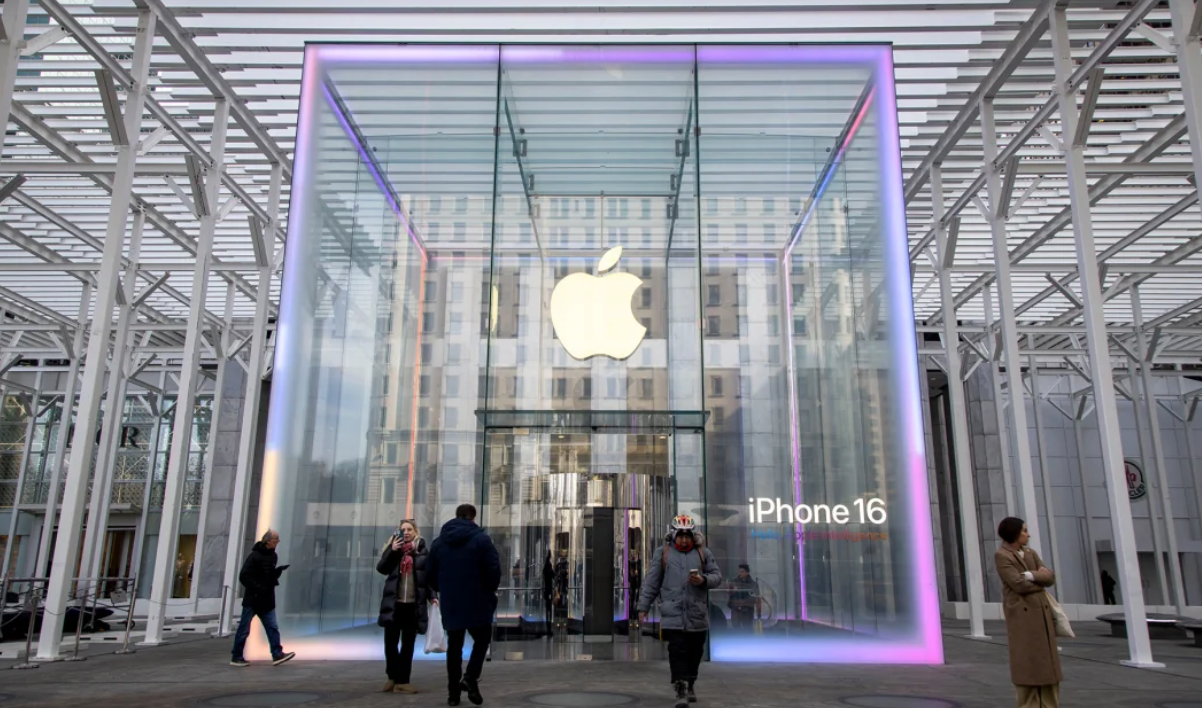Apple has been receiving criticism in both tech and financial media for its uncertain venture into artificial intelligence (AI). After an announcement in June about a new AI-powered version of Siri, the company has delayed the release indefinitely. Some of the AI features Apple has introduced, such as text message summaries, have proven to be unhelpful.
While these critiques are not entirely unjust, they miss the bigger picture. Like many other tech companies, Apple is racing to integrate AI into its products. Why? Because it’s seen as the future. But what problems it’s solving remains unclear. Are customers demanding it? Not really. In fact, last year, a backlash against one of Apple’s early AI ads was so severe that the company had to pull the commercial.
The real driving force behind this push is Wall Street’s demand for a new “super cycle”—a major tech upgrade that would encourage consumers to rush and buy the latest model.
In its haste to please shareholders, Apple has stumbled. However, the company seems to be acknowledging its misstep, with a vague promise that the delayed features will be available “in the coming year.”
The delay has fueled the narrative that Apple has become a laggard in AI development. This is where the critique of Apple’s AI efforts takes a misguided turn.
AI Isn’t Inherently Perfect
There’s a popular saying in policy circles: “The party can never fail, it can only be failed.” This idea critiques the tendency of some to blame voters for a party’s failure instead of the party itself.
This same idea is emerging within AI circles, where AI is treated as an inevitability and a revolution that cannot fail—it can only be failed by us, the people who supposedly don’t understand its potential. While even AI proponents admit current models have flaws, the prevailing narrative within the tech world is that AI is revolutionary and unstoppable.
Tech writers, like Kevin Roose, have argued that Apple is failing AI, rather than the reverse. Roose, speaking on his podcast, said, “Apple is not meeting the moment in AI.” He suggests that when integrating generative AI into products, companies need to be comfortable with errors, imperfections, and unfinished features.
I respectfully disagree.
While Roose is right that Apple is known for its fastidious attention to detail, it’s important to note that Apple’s reputation is built on reliability. The company’s brand is one of the most carefully controlled in the world. Apple has built trust by focusing on user privacy and security—something that gives customers confidence when sharing sensitive information.
Additionally, Apple has designed its products to be user-friendly. Whether it’s an iPhone, Apple Watch, or AirPods, customers know they’ll have a seamless experience straight out of the box, even without reading a manual. Even people who aren’t tech-savvy can easily navigate Apple devices.
Roose contends that AI users understand that the systems they interact with aren’t perfect, and they know how to work around limitations. But this, according to him, is a barrier to widespread AI adoption. Instead of expecting AI to be flawless, consumers should accept its imperfections.
Here’s where I take issue. Why should we settle for unpolished, error-prone AI? Is that the end goal?
As Casey Newton notes in the same podcast episode, Google and Amazon haven’t made AI a must-have feature that would drive users to buy their products. AI remains more of a scientific curiosity than a consumer product.
AI: An Interesting Science, But Not Yet a Practical Tool
Large language models, like ChatGPT and Claude, are certainly fascinating from a scientific perspective. They show incredible potential, but they’re not quite ready for prime time as consumer products. A tool that’s 80% accurate (as Newton humorously suggests) isn’t very useful for everyday tasks.
Earlier this year, Apple envisioned a practical use case for its AI-powered Siri. Imagine being in a rush and asking Siri to check the status of your mom’s flight, including the airport, without needing to go through multiple steps on your own. In an ideal world, this would save you valuable time. But if Siri isn’t 100% accurate, it could lead to embarrassing and costly mistakes, such as giving the wrong flight details. That’s a 2% chance of failure that no one wants to risk, especially when it comes to something important like picking up family members from the airport.
To sum it up: Apple is not lagging behind in AI. Rather, AI itself is still lagging. Until these technologies are refined and reliable, it’s understandable why Apple is hesitant to rush them into its products. AI is still a work in progress, and in the case of consumer applications, perfection is crucial.














